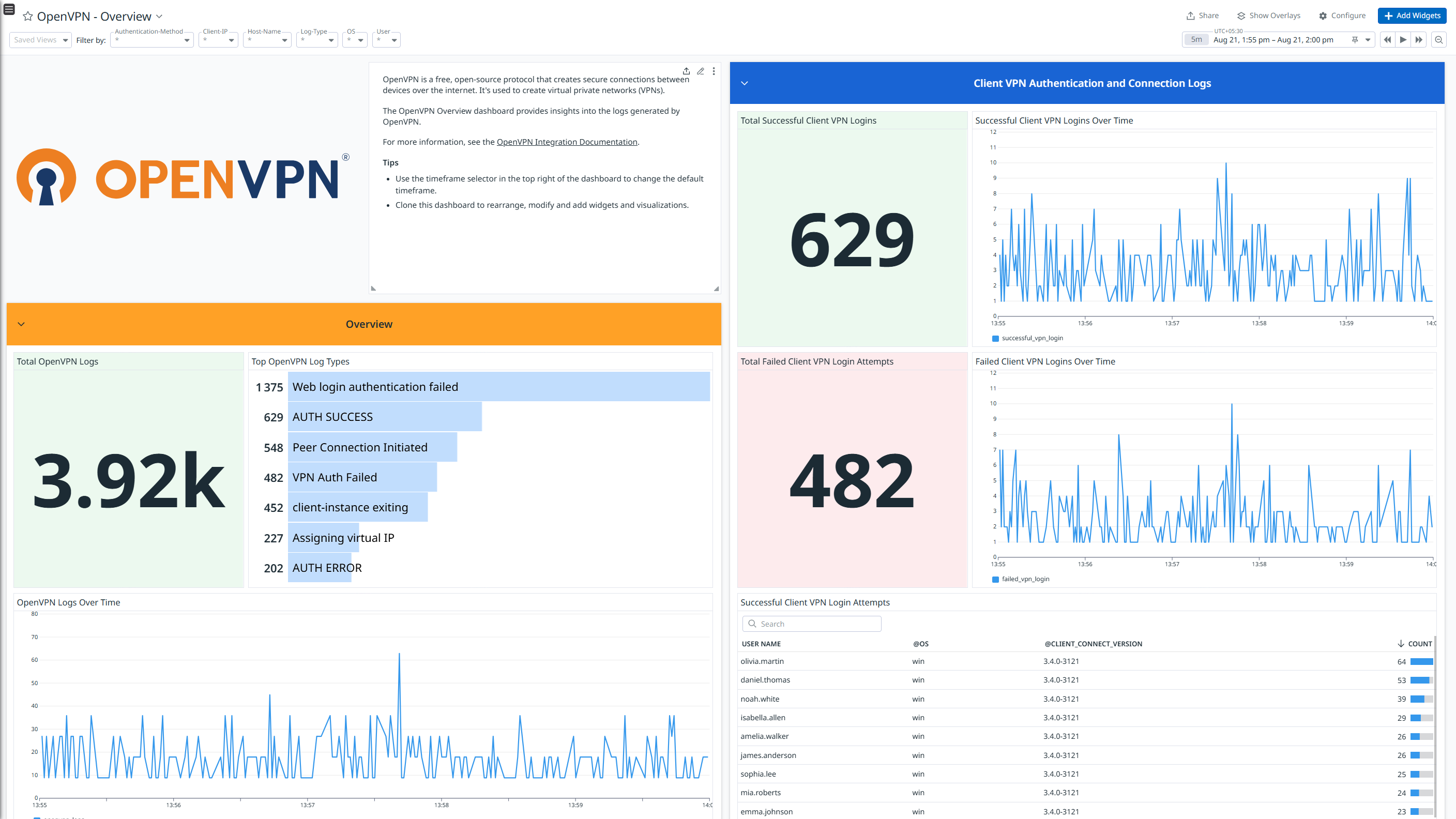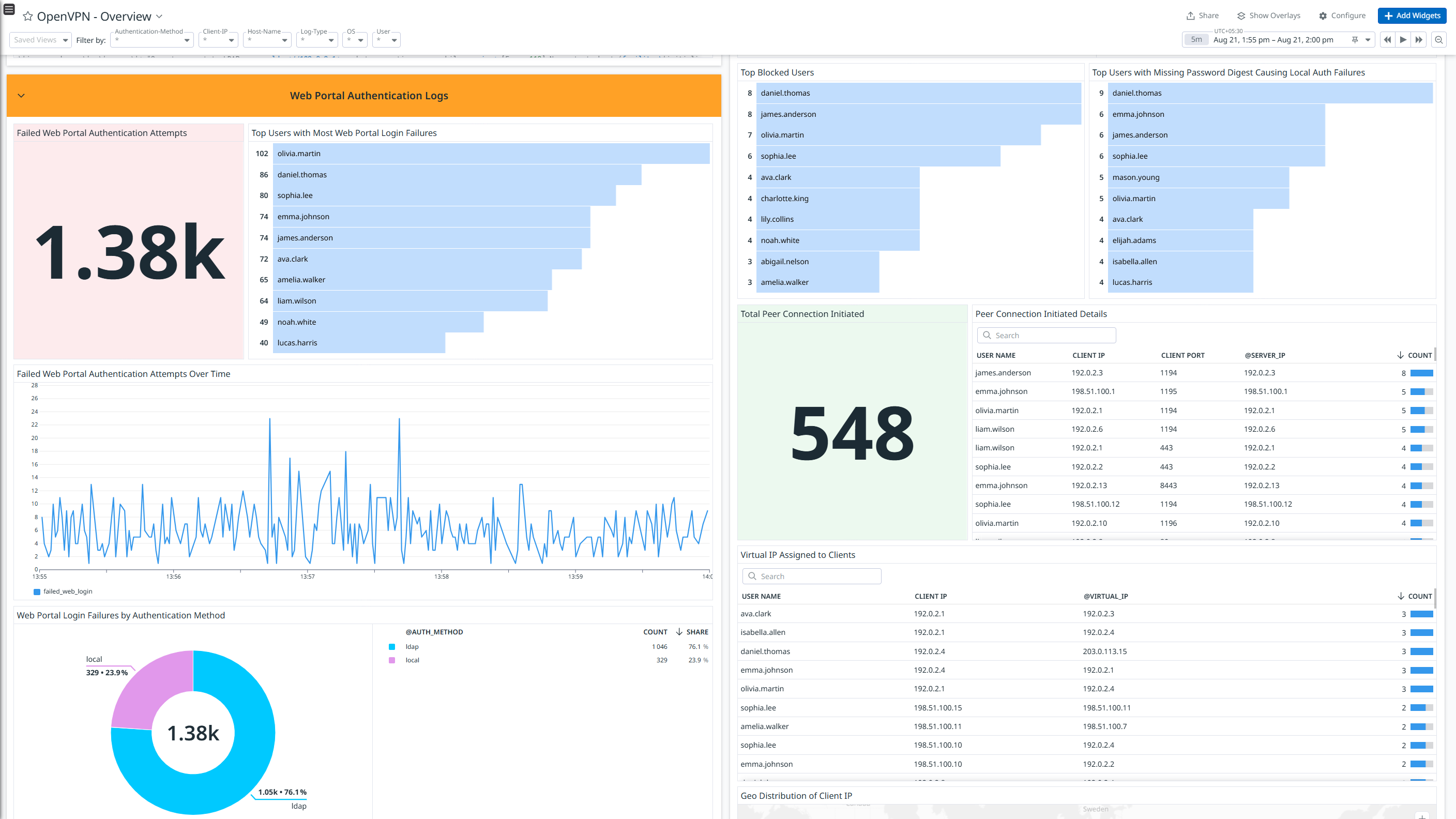- Essentials
- Getting Started
- Agent
- API
- APM Tracing
- Containers
- Dashboards
- Database Monitoring
- Datadog
- Datadog Site
- DevSecOps
- Incident Management
- Integrations
- Internal Developer Portal
- Logs
- Monitors
- Notebooks
- OpenTelemetry
- Profiler
- Search
- Session Replay
- Security
- Serverless for AWS Lambda
- Software Delivery
- Synthetic Monitoring and Testing
- Tags
- Workflow Automation
- Learning Center
- Support
- Glossary
- Standard Attributes
- Guides
- Agent
- Integrations
- Developers
- Authorization
- DogStatsD
- Custom Checks
- Integrations
- Build an Integration with Datadog
- Create an Agent-based Integration
- Create an API-based Integration
- Create a Log Pipeline
- Integration Assets Reference
- Build a Marketplace Offering
- Create an Integration Dashboard
- Create a Monitor Template
- Create a Cloud SIEM Detection Rule
- Install Agent Integration Developer Tool
- Service Checks
- IDE Plugins
- Community
- Guides
- OpenTelemetry
- Administrator's Guide
- API
- Partners
- Datadog Mobile App
- DDSQL Reference
- CoScreen
- CoTerm
- Remote Configuration
- Cloudcraft (Standalone)
- In The App
- Dashboards
- Notebooks
- DDSQL Editor
- Reference Tables
- Sheets
- Monitors and Alerting
- Service Level Objectives
- Metrics
- Watchdog
- Bits AI
- Internal Developer Portal
- Error Tracking
- Change Tracking
- Event Management
- Incident Response
- Actions & Remediations
- Infrastructure
- Cloudcraft
- Resource Catalog
- Universal Service Monitoring
- End User Device Monitoring
- Hosts
- Containers
- Processes
- Serverless
- Network Monitoring
- Storage Management
- Cloud Cost
- Application Performance
- APM
- Continuous Profiler
- Database Monitoring
- Agent Integration Overhead
- Setup Architectures
- Setting Up Postgres
- Setting Up MySQL
- Setting Up SQL Server
- Setting Up Oracle
- Setting Up Amazon DocumentDB
- Setting Up MongoDB
- Connecting DBM and Traces
- Data Collected
- Exploring Database Hosts
- Exploring Query Metrics
- Exploring Query Samples
- Exploring Database Schemas
- Exploring Recommendations
- Troubleshooting
- Guides
- Data Streams Monitoring
- Data Observability
- Digital Experience
- Real User Monitoring
- Synthetic Testing and Monitoring
- Continuous Testing
- Product Analytics
- Session Replay
- Software Delivery
- CI Visibility
- CD Visibility
- Deployment Gates
- Test Optimization
- Code Coverage
- PR Gates
- DORA Metrics
- Feature Flags
- Security
- Security Overview
- Cloud SIEM
- Code Security
- Cloud Security
- App and API Protection
- AI Guard
- Workload Protection
- Sensitive Data Scanner
- AI Observability
- Log Management
- Observability Pipelines
- Configuration
- Sources
- Processors
- Destinations
- Packs
- Akamai CDN
- Amazon CloudFront
- Amazon VPC Flow Logs
- AWS Application Load Balancer Logs
- AWS CloudTrail
- AWS Elastic Load Balancer Logs
- AWS Network Load Balancer Logs
- Cisco ASA
- Cloudflare
- F5
- Fastly
- Fortinet Firewall
- HAProxy Ingress
- Istio Proxy
- Juniper SRX Firewall Traffic Logs
- Netskope
- NGINX
- Okta
- Palo Alto Firewall
- Windows XML
- ZScaler ZIA DNS
- Zscaler ZIA Firewall
- Zscaler ZIA Tunnel
- Zscaler ZIA Web Logs
- Search Syntax
- Scaling and Performance
- Monitoring and Troubleshooting
- Guides and Resources
- Log Management
- CloudPrem
- Administration
OpenVPN
Supported OS
Integration version1.2.0


OpenVPN - Overview 1
OpenVPN - Overview 2
Overview
OpenVPN is a free, open-source protocol that creates secure connections between devices over the internet. It’s used to create virtual private networks (VPNs).
This integration enriches and ingests the following events:
- Authentication Events: Represents user login attempts, including successful and failed authentications.
- Connection Events: Represents instances when a client establishes or disconnects a VPN session.
This integration seamlessly collects all of the above listed logs, channeling them into Datadog for analysis. Leveraging the built-in logs pipeline, these logs are parsed and enriched, enabling effortless search and analysis. The OpenVPN integration provides insight into authentication and connection events through the out-of-the-box dashboards. Additionally, it includes ready-to-use Cloud SIEM detection rules for enhanced monitoring and security.
Minimum Agent version: 7.67.0
Setup
Installation
To install the OpenVPN integration, run the following Agent installation command and the steps below for log collection. For more information, see the Integration Management documentation.
Note: This step is not necessary for Agent version >= 7.65.0.
Linux command:
sudo -u dd-agent -- datadog-agent integration install datadog-openvpn==1.0.0
Configuration
Log collection
Collecting logs is disabled by default in the Datadog Agent. Enable log collection in your
datadog.yaml:logs_enabled: trueAdd this configuration block to your
openvpn.d/conf.yamlfile to start collecting your OpenVPN logs.See the sample openvpn.d/conf.yaml for available configuration options. The appropriate protocol (either TCP or UDP) should be chosen based on the OpenVPN syslog forwarding configuration.
logs: - type: tcp/udp port: <PORT> service: openvpn source: openvpnNote:
- PORT: Port should be similar to the port provided in Configure syslog message forwarding from openvpn server.
- It is recommended not to change the service and source values, as these parameters are integral to the pipeline’s operation.
Configure Syslog Message Forwarding from OpenVPN Server
- Please follow provided link steps to configure syslog over OpenVPN: Configure syslog over OpenVPN
Validation
Run the Agent’s status subcommand and look for openvpn under the Checks section.
Data Collected
Logs
The OpenVPN integration collects Authentication Events and Connection Events.
Metrics
The OpenVPN integration does not include any metrics.
Events
The OpenVPN integration does not include any events.
Service Checks
The OpenVPN integration does not include any service checks.
Troubleshooting
OpenVPN
Permission denied while port binding:
If you see a Permission denied error while port binding in the Agent logs, see the following instructions:
Binding to a port number under 1024 requires elevated permissions.
Grant access to the port using the
setcapcommand:sudo setcap CAP_NET_BIND_SERVICE=+ep /opt/datadog-agent/bin/agent/agentVerify the setup is correct by running the
getcapcommand:sudo getcap /opt/datadog-agent/bin/agent/agentExample of the expected output:
/opt/datadog-agent/bin/agent/agent = cap_net_bind_service+epNote: Re-run this
setcapcommand every time you upgrade the Agent.
Data is not being collected:
Make sure that traffic is bypassed from the configured port if the firewall is enabled.
Port already in use:
If you see the Port <PORT-NO> Already in Use error, see the following instructions. The example below is for PORT-NO = 514:
On systems using Syslog, if the Agent listens for events on port 514, the following error can appear in the Agent logs: Can't start UDP forwarder on port 514: listen udp :514: bind: address already in use.
This error occurs because Syslog listens on port 514 by default. To resolve it, use one of the following steps:
- Disable Syslog.
- Configure the Agent to listen on a different, available port.
Troubleshooting OpenVPN Logs Not Appearing in Datadog
If OpenVPN logs are not appearing in Datadog after setup, try restarting openvpnas and rsyslog services.
- Run the following command to restart openvpnas service:
service openvpnas restart - Run the following command to restart rsyslog service:
service rsyslog restart
For any further assistance, contact Datadog support.
